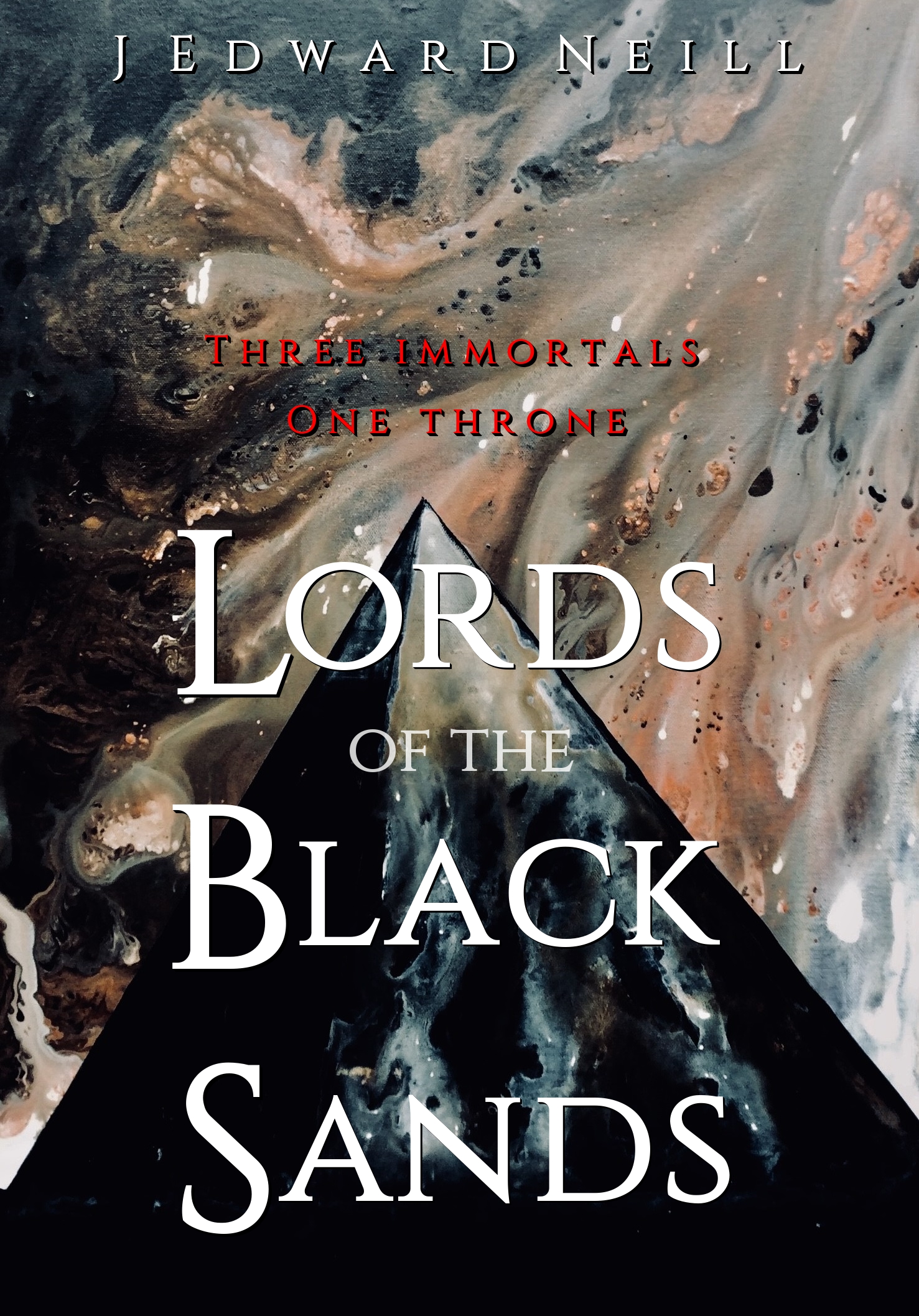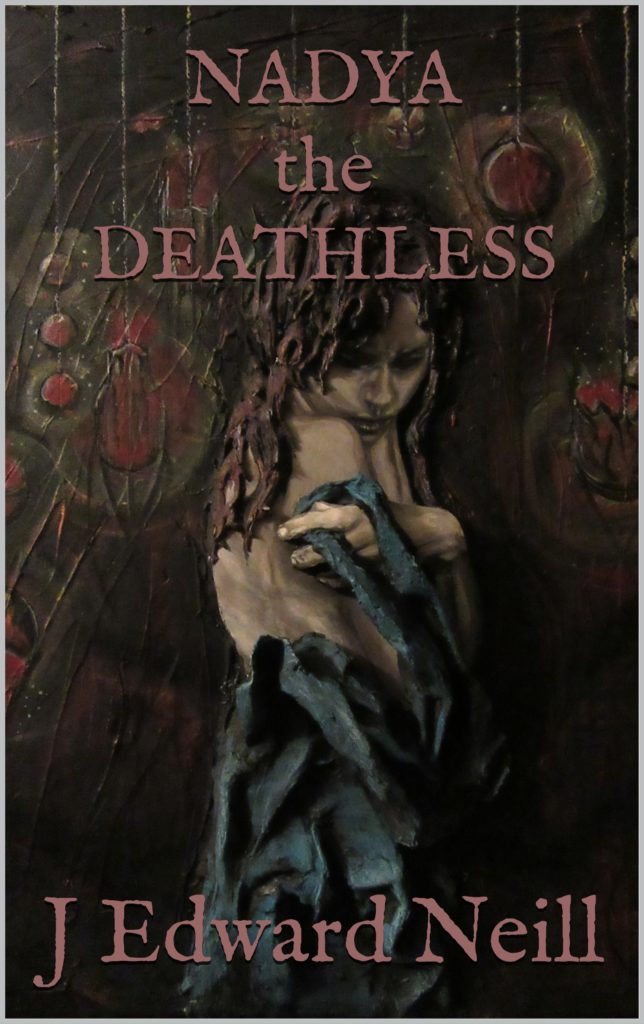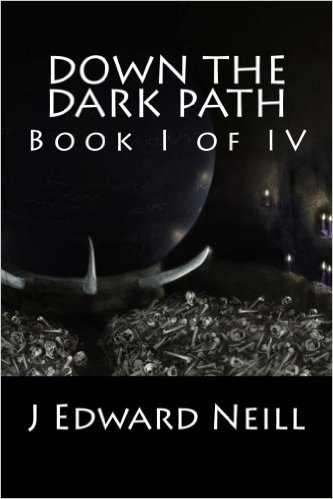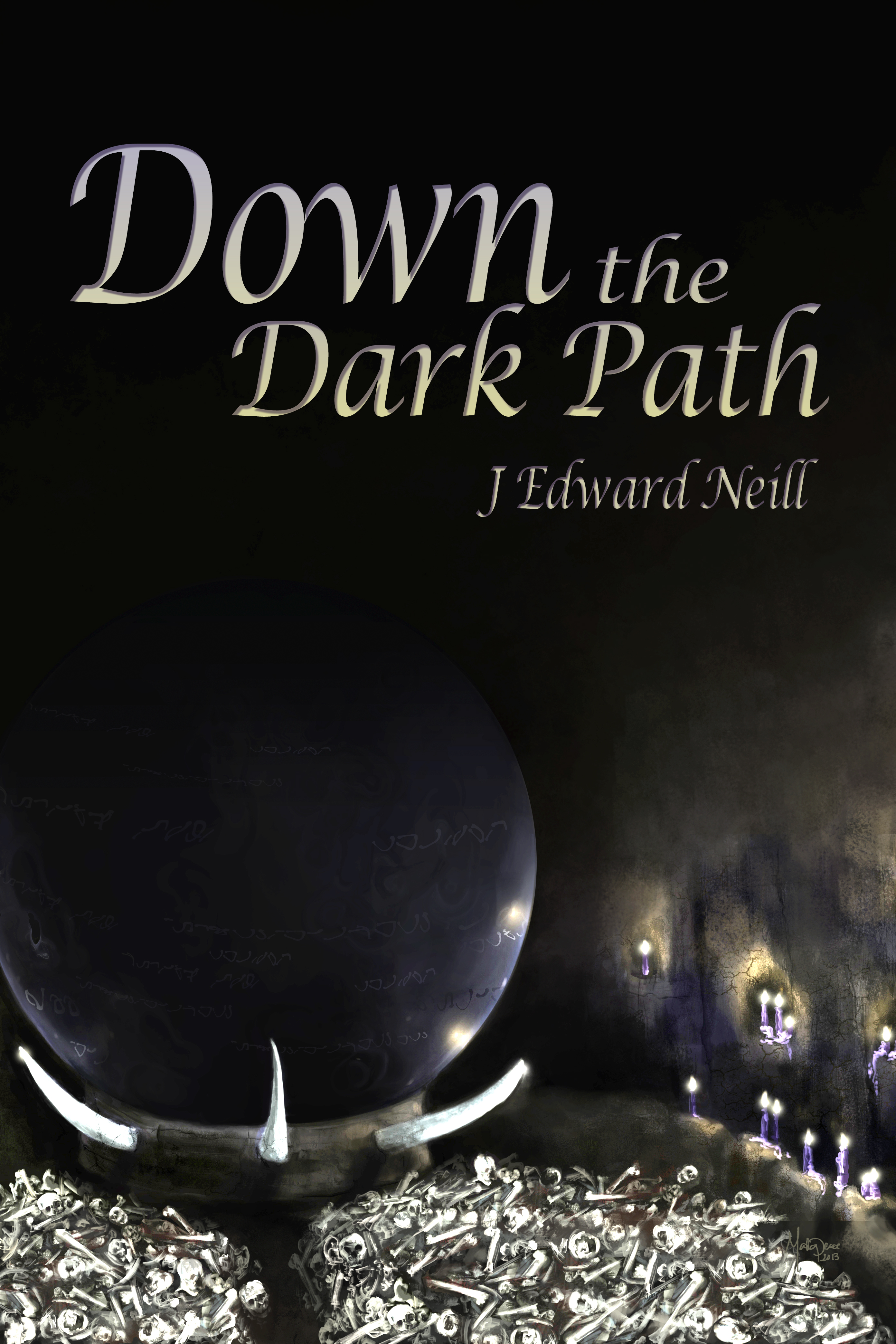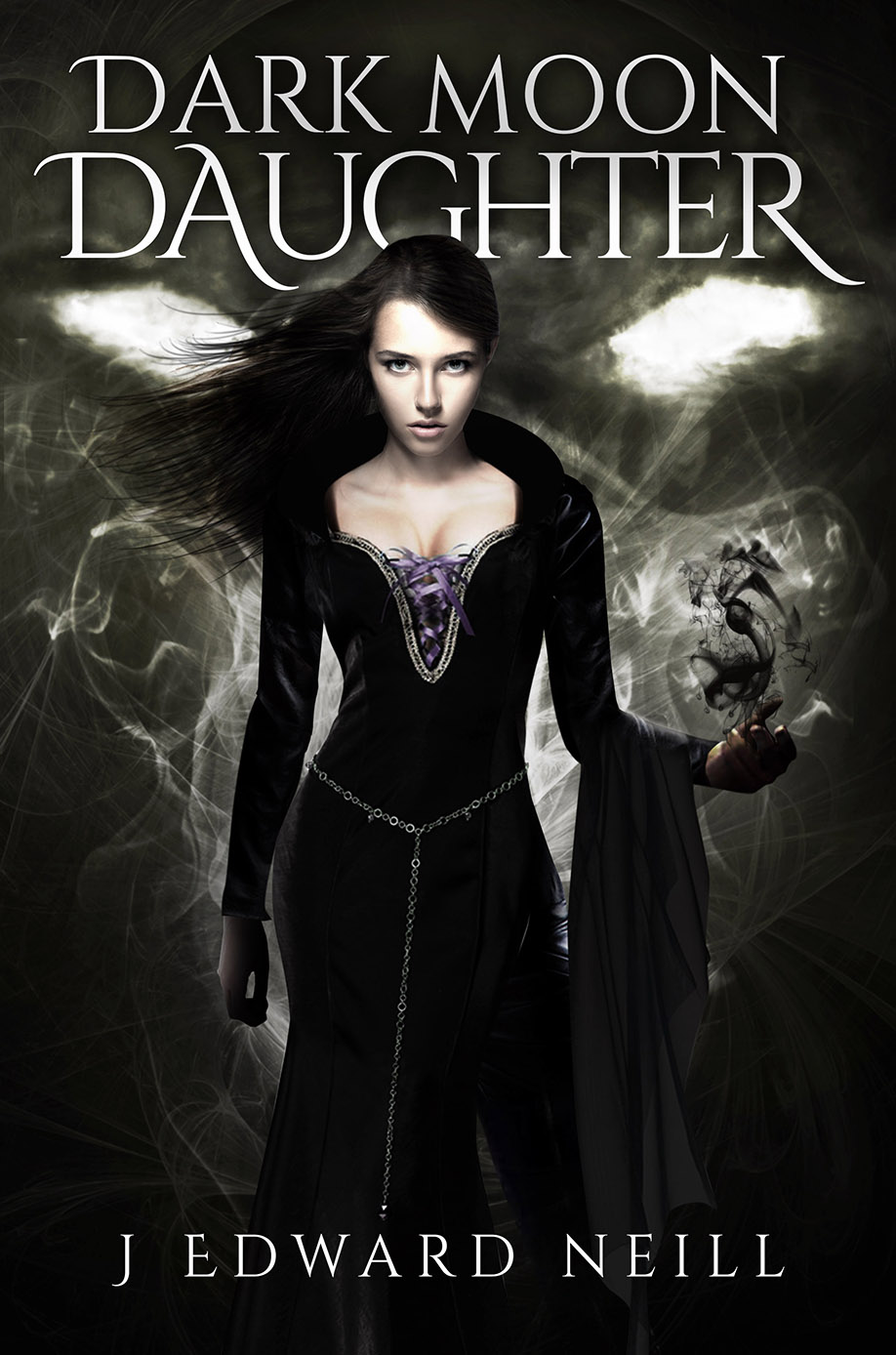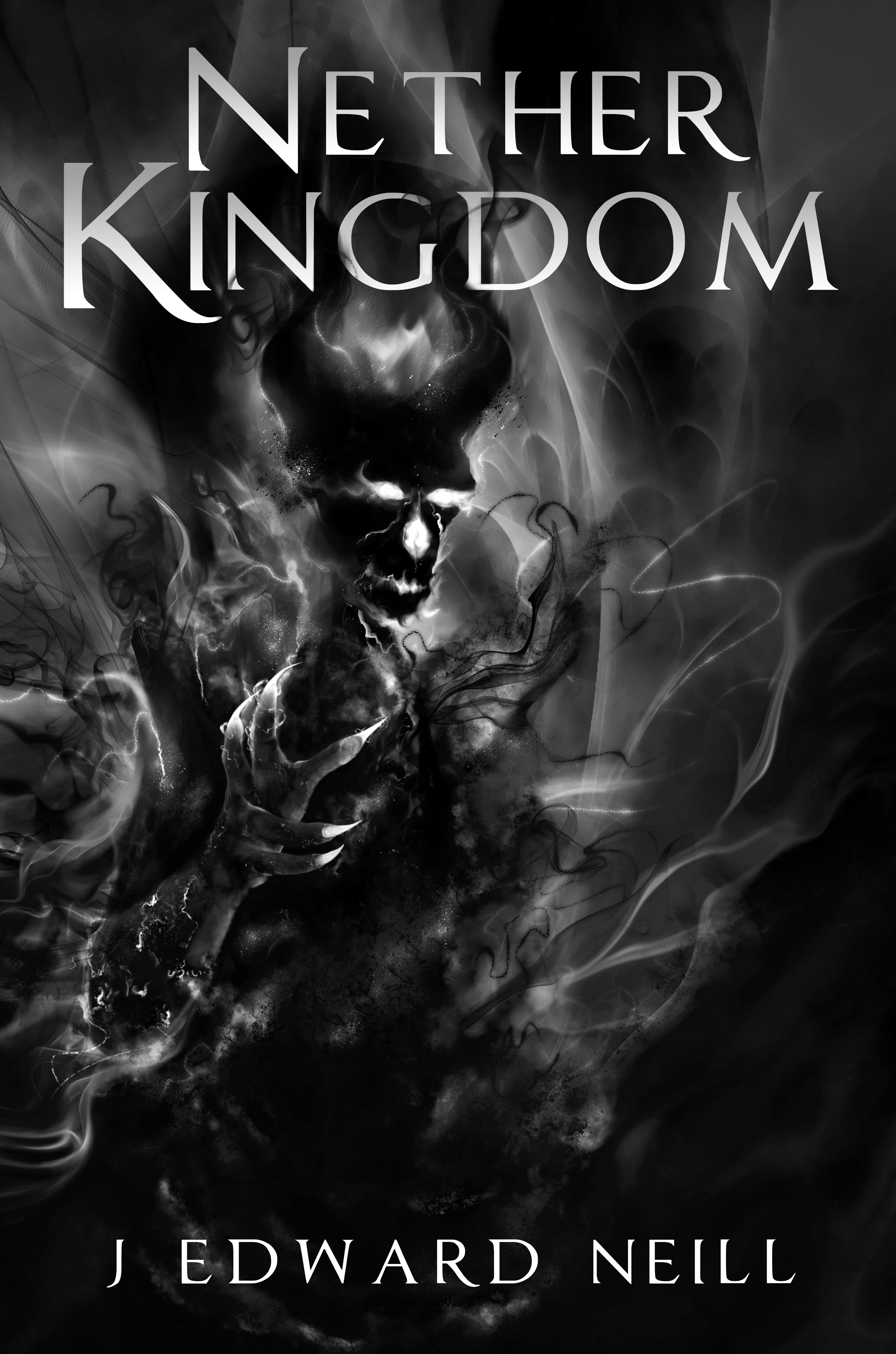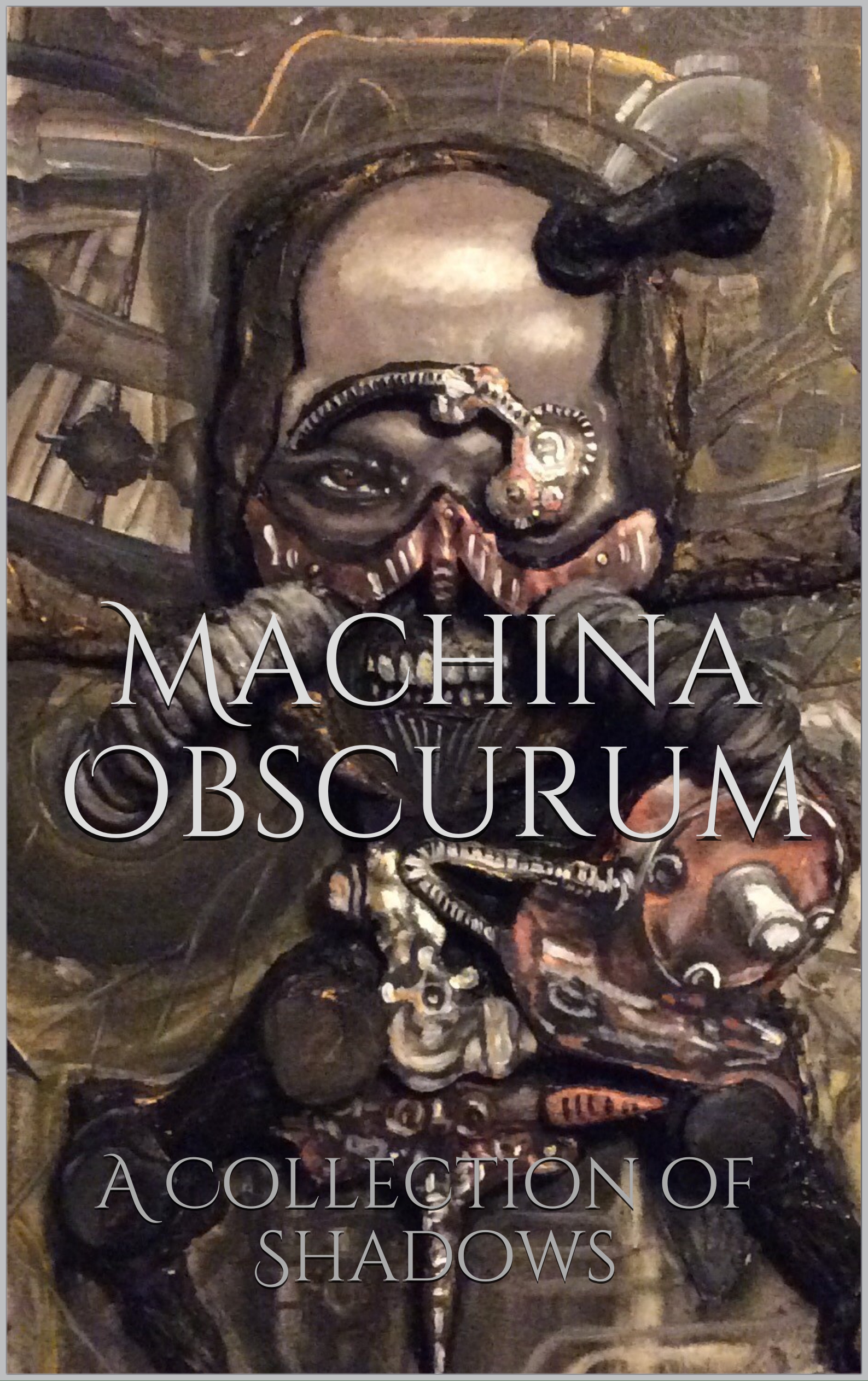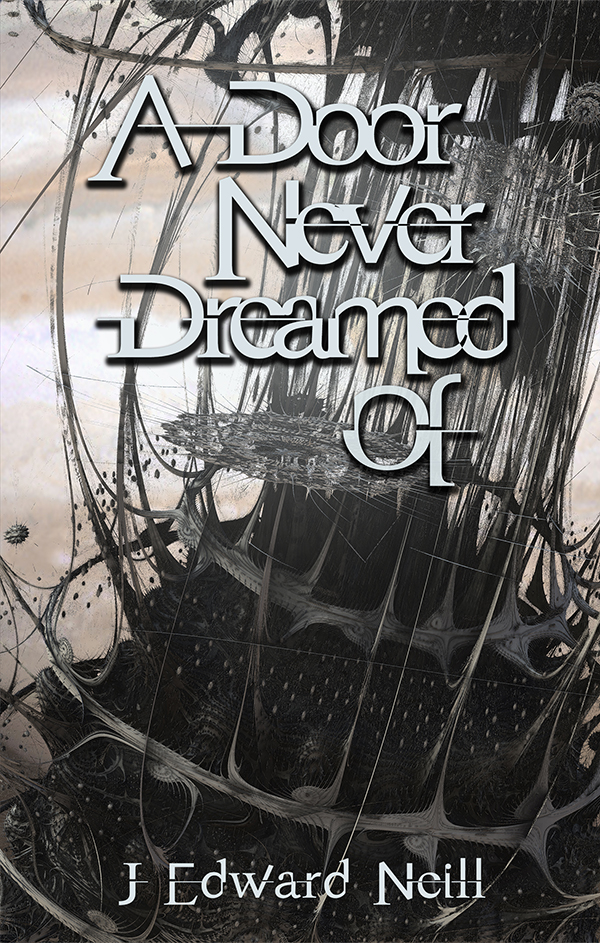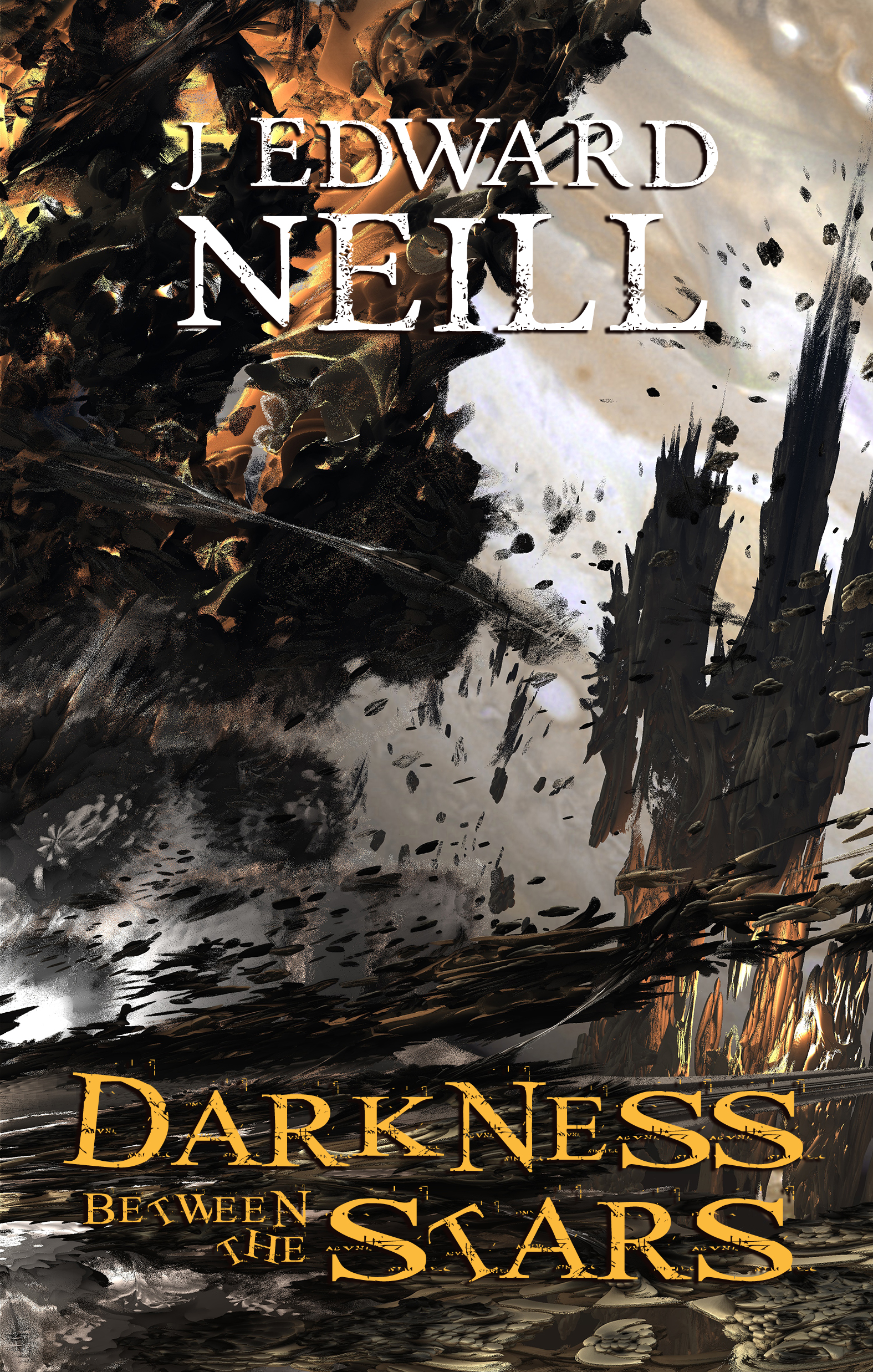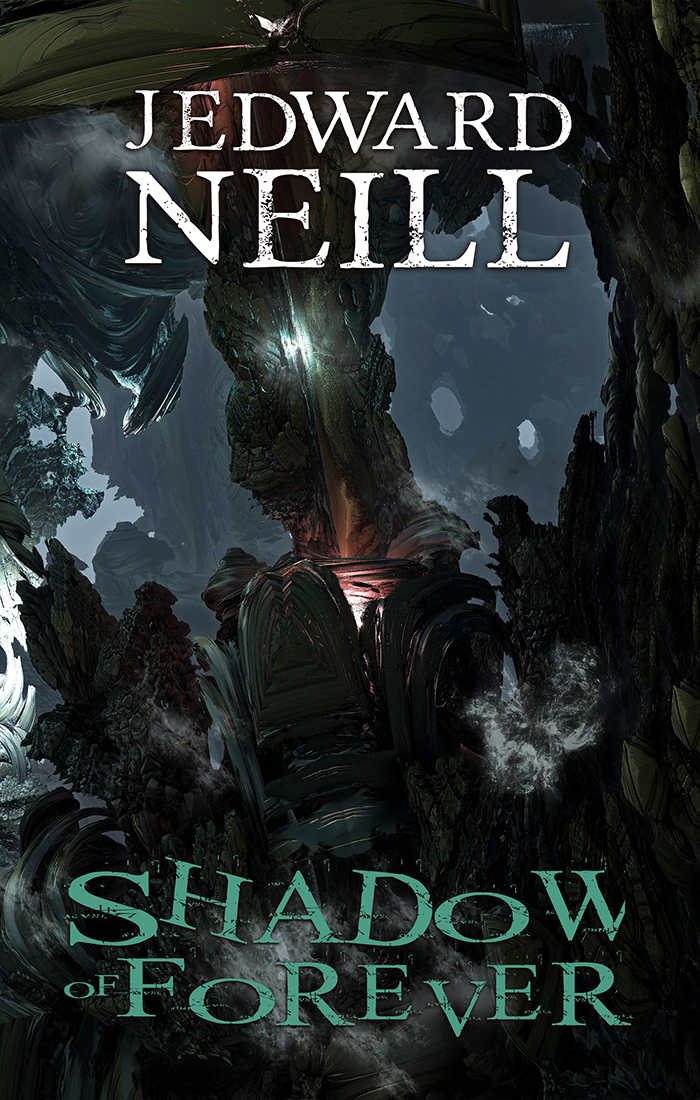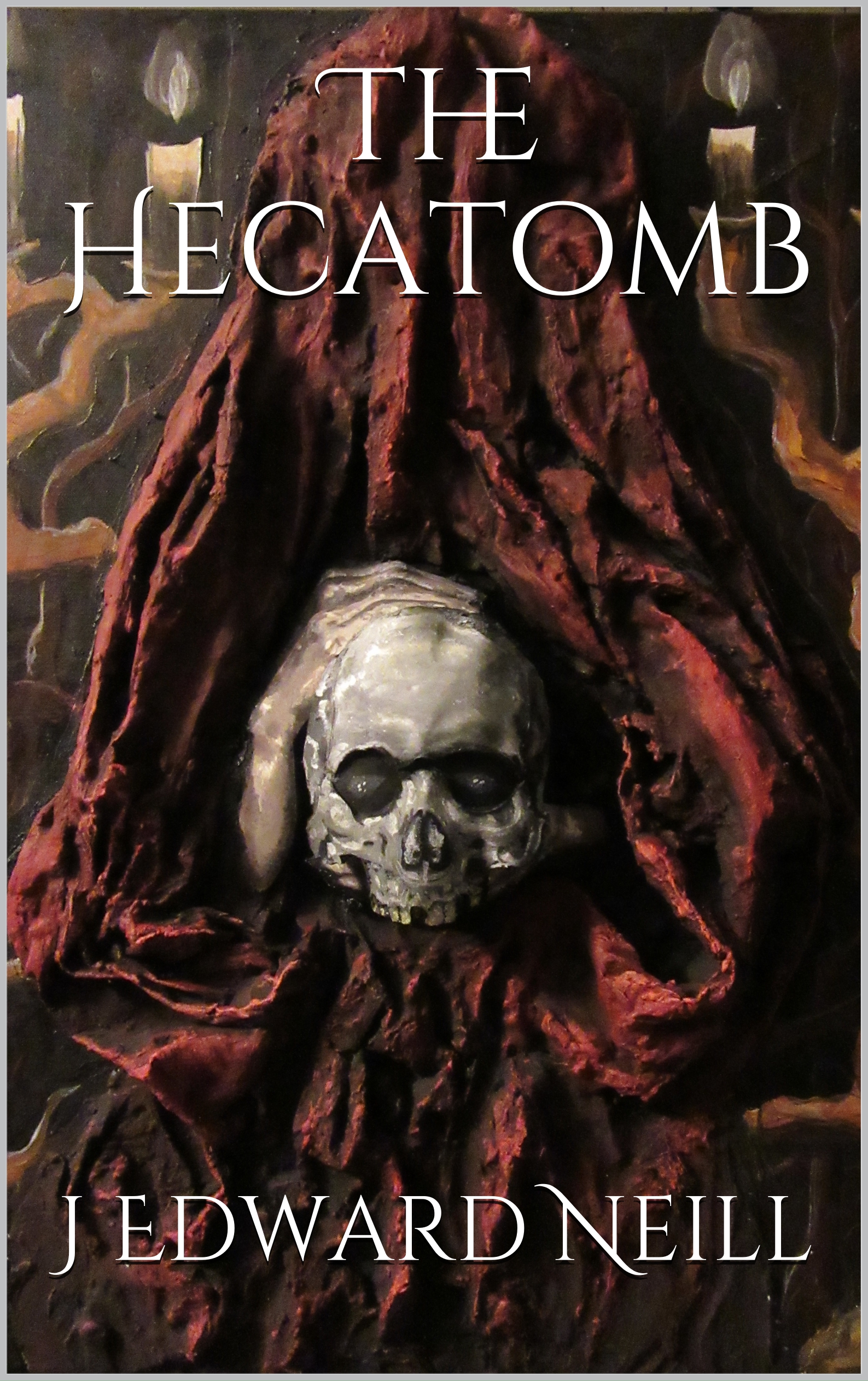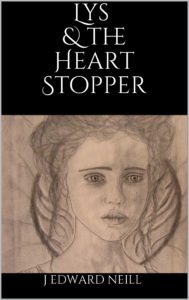Category: Dystopian
He didn’t mean for everyone to die…
Galen hadn’t meant for everyone to die.
He hunkered in his hole, bobbing his head to the falling rain’s beat.
He tasted the ashes of the dead in the air.
And he knew it was his fault.
If I hadn’t come here, they’d be alive.
I guess I did them a favor.
Little streams of warm water slid across the broken streets over his head and plunged into his hiding spot. He hated the feel of the rain squelching in his boots, and he grimaced when the foul liquid peppered his hood. He hadn’t been this uncomfortable in weeks, not since the time he’d cut the fingers off a man who’d tried to steal his one and only apple.
My last apple. He shook his head.
Did he have to bleed on it?
Down in the muck and shadows, he waited for the rain to snuff the fires. The stench in his pit was unbearable. Two others had crawled down into the hole, but they’d been too slow, and had gagged to death moments later. The poisonous air in the city above had been more than enough to kill them.
He wanted out.
But he knew if he poked his head up too soon, someone was likely to nip it off…
*
*
Think Galen will lose his head?
Find out here.
Nadya the Deathless – A new short story by J Edward Neill
Mother to a slain child…
Hunted for her power…
Some fear her…
Others adore her…
Those who know her best have named her…
Nadya the Deathless
Episode 8 in the Hollow Empire series
Fantasy & Sci Fi Spring Book Sale
Dark magic.
Evil sorcerers.
Fiery Witches
Ghoulish creatures.
Star-destroying vampires.
Get your spring reads right here. This week only (April 9th- April 12th) All titles are $0.99 or FREE.
Will she survive?
My name is Lys.
And like most people who survived the plague, my life is something other than what I dreamed.
* * *
In a rotten prison cellar, I awoke. I wanted to believe morning had come, but without windows I could only wish. Rain leaked through the ceiling in more places than I could count, while the rats scurried to escape the widening puddles.
Thunder rolled.
The brick walls clattered.
I feared the whole place might crumble atop me.
Somehow, the other girls slept through it.
But I didn’t.
I’d hardly slept for the last nine years.
I’d left something undone.
I sat up, and my mattress squelched beneath me. The stink made my eyes water. Even though my bunk lay beneath two others, it hadn’t slowed the decay. The rats loved tunneling through the moldering cloth. I’d have preferred to sleep in a swamp.
Our prison, one of dozens in the wretched city of Tiev, had no windows, no hearth, and only one rusted iron door.
I’d been there so long, I’d forgotten what the world looked like.
I clambered out of bed and padded to the round table in the cellar’s heart. My toes hurt every time they touched the cold, wet floor. My waifish dress, tattered and too revealing, sagged on my skinny shoulders. Like every morning, I wondered what I looked like.
I hadn’t seen a mirror in years. The blonde ringlets I’d had as a child were long gone.
No matter what the other girls said, I was sure I’d become an ugly, ruined thing.
I swatted two rats off the table and tore a chunk off the loaf of bread they’d been nibbling. Used to be, I’d run in terror from the rats. We’d never had them at Luka’s house. If there’s one thing the cruel apothecary had been good at, it’d been keeping things clean.
Everything had changed once the men in red and black had come.
They’d murdered Luka and captured our caretaker, Murgul.
I’d meant to save Murgul from their clutches, but I’d failed.
Now I’m here until I turn eighteen.
Until they take me away to become a rich man’s concubine.
One by one, the other girls woke. Marida, the raven-haired beauty, slid off her top bunk and joined me at the table. She said nothing when I broke off another chunk of bread and dropped it into her hands. She hadn’t spoken in days.
She’s knows she’s next.
Next came Breta, Charla, and Yen. The three girls were the best of friends, if something so profound as friendship could exist in our sad little dungeon. They’d been orphaned after a great fire had swept through their city. The promise of a new life far from danger had been a lie, and the black wagons had swept them away with the rest of us.
We were to become chattel, wives to the wretched old men who’d lost their families to the plague.
“Morning,” Breta greeted me. Her dark eyes betrayed her jealousy. If I hadn’t been older and taller, she’d have stripped my bread right out of my hands.
“Morning,” I managed.
The three girls took what remained of the dry, stale loaf. In the light of four lamps, whose fires cast a sickly light across our faces, we stood and ate.
“Look at us,” Breta complained as she chewed. “We’re no better than the rats. You’d think if they wanted us pretty for our new husbands, they’d feed us better.”
Yen, wisest of the three friends, shook her head. Even with the scar on her cheek, I envied her prettiness.
“In Tiev, no one eats better than the rats,” she said.
No one.
I peered at the five little girls across the room. In a single bunk, they huddled and whispered fearful things. I hadn’t learned their names yet. They’d only arrived three nights ago, and were mostly too terrified to speak to us.
“I wish they’d feed the young ones better,” I said. “They’ll never last on bread and water.”
Breta shot me a glare. Cruelty blazed in her dark eyes. I pitied her husband-to-be.
“What are you saying?” she snapped. “We don’t deserve as much food as they do? We’ve been here for years. We’re closer to being married than they are.”
“Feed the fattest pigs first, is that it?” I said without raising my voice. “And you assume our marriages are real. For all we know, we’re to become breeders. Or mine workers. Or food for the Iritul hounds.”
I felt sorry the moment I said it. I saw Marida, oldest among us, close her eyes.
She could go any day now, I knew.
I should shut my mouth.
“What do you know?” Breta wouldn’t give it up. “You’re only here because you’re stupid. What kind of fool leaves her home and abandons her friends? Don’t you know, Lys? There’s no such thing as the Branded. They don’t exist. You were chasing a lie.”
It’s not a lie, I wanted to say.
And I did it for the only friend who mattered.
If I’d wanted, I could’ve argued with Breta for hours. But there seemed little point. She was right, after all. I’d run away from a safe life and sought help from a vagabond. In my wild, nine-year old mind, I’d fled into a world I hadn’t fully understood.
And when the men in red and black had caught me, I hadn’t even screamed.
I retreated to my bed. While the older girls played Oubliette using worn pieces and a weathered board, I sat and watched.
I’d almost drifted to sleep when they came for Marida.
The first man swung the door wide on its rusted hinges. The second two, dressed in blackened leather, stormed into the room.
They didn’t have to ask Marida’s name.
Everyone knew she was the most beautiful.
With heavy boots and armored shoulders, they tore her from her stool at the table. I saw her breath leave her as they closed their gloved fingers around her narrow wrists, hauling her away as if she were lighter than air. The man waiting at the door dropped a dark sackcloth over her head. She sobbed just once. Then she was gone.
And then they came for me.
I didn’t expect it. My eighteenth birthday hadn’t yet come, or so I’d convinced myself. The truth was – I didn’t know my birthday. Like the others, I’d been orphaned at birth.
“Come ‘ere, pretty,” the impossibly broad man took hold of my upper arm. His breath reeked of wine, and his grip was the strongest I’d ever suffered.
I didn’t resist him, and yet he dragged me across the room as though I were a sack of potatoes. I managed a last look at Breta, who for the first and final time wore something resembling sympathy in her eyes. And I saw the children, who clung to their blankets and shivered so hard their bones must’ve hurt.
A dark hallway opened up before me.
The sackcloth came down over my eyes.
Grunting, two men led me up several stairwells. I heard Marida a few steps ahead, breathing hard beneath her sackcloth. I felt the urge to fight, to tear away the daggers I’d seen on the men’s waists and carve my way into the sunlight.
But I didn’t dare.
I knew what happened to those who resisted. I’d seen the men in black and red light pyres, sharpen axes, and tie nooses by the hundred. The Inquisitor who ruled Tiev had no time for mercy. Most times, I’d wondered how anyone in the city survived his reign.
The men hauled me outside. I felt my bare feet sink into the mud, the wind caress my neck, and the fragile sunlight fall on my shoulders. It felt so good I wanted to cry. But crying was something else I hadn’t done in years.
“Get inside.” One of my captors pushed me into a dark space. I heard Marida beside me, choking back her tears. They’d put us into a wagon, the same kind in which they’d kidnapped me many years ago.
“If you behave, there’s more than bread for you,” a man said. “You’re bound for Eos. Your husbands await you. It’s a better life than most girls your age ever see.”
A better life? I thought.
No. It’s death. Slow, but still death.
They shut the wagon doors. Although the autumn breeze had chilled me, the dark space inside the wagon felt stuffy.
I couldn’t help myself.
I removed my sackcloth.
“Tiny windows.” I inhaled the cold, dank air. “Doors barred from the outside. There’s another compartment, but it’s empty. Wherever we’re going, we’re going alone.”
As expected, Marida heard me.
“You took your sack off?” she said. “They’ll kill you for that.”
“No they won’t,” I said. “Someone’s paid money for us. If we show up dead or bruised, whoever bought us won’t be happy.”
“How do you know that?”
“I don’t,” I admitted. “It’s just a guess.”
The wagon jerked into motion. The horses pulling it must’ve been powerful to pull the huge wooden coffin with such ease. At first, we bounced in our seats. Tiev’s roads were as rotten as everything else in the city.
But soon our ride became smoother. Tiev’s clamor fell away, and we rolled along with ease.
“We’ve left the city,” I said.
“Is it night?” Marida asked. “Which way are we going?”
“No. Not night.” I peered through a barred window. “It’s noon, I think. The way the light looks, it feels like mid-autumn. That’s just a guess. It’d be easier if you took off your sackcloth. They’re not going to hurt—”
“I’m not afraid of being hurt,” she said. “I’m afraid of where they’re taking us. I don’t want to go back.”
“Back? Where?”
“To Eos. Or to Othis,” she said. “I hated the city before it burned. Imagine it now…so many dead…only the worst remain. And Ulka…he’s there. They say he can kill anyone he touches. The other girls don’t believe in the Branded, but I know. You’re right to be afraid.”
I heard only his name – Ulka.
I shivered so hard Marida must’ve heard me.
“You claimed you wanted to escape,” she said.
“Yes,” I murmured. “…escape.”
“How come you never tried?”
“I—”
I’m afraid.
Afraid of Ulka.
Afraid of his men.
Afraid they killed Murgul, my only friend in the world, long ago.
“I wanted to,” I said. “But I couldn’t. Our dungeon…too many guards. And even if I escaped, where would I go? No one’s looking for me. I have nothing.”
“Oh,” was all she said.
I heard much more in her voice.
I had a plan.
I was willing to risk everything for him.
I’m a coward.
For many hours, we rolled on. Except to shove a cup of water through the door, the men never troubled us. I gave the water to Marida, who held the cup in her hands, but never took a sip.
Lost in my head, I barely felt the wheels splinter.
The wagon groaned to a stop. I heard men cursing outside the windows. I knew a long while had passed. The light shone through the bars weaker than before, as pale and cold as the lamps in our prison had been.
“We’re not moving,” said Marida. She hadn’t uttered a word in several hours.
I tried to peer outside, but through the narrow window I saw only the flat horizon and the falling sun. I sensed we were far from civilization, somewhere in the wasteland between dead and dying cities.
I waited.
And I listened.
“…get the new wheel on,” one of the men spat.
“…night’s coming. Be quick about it.”
“…how far to the outpost?”
“…still a few more hours.”
I felt the wagon creak beneath me. The day’s last light crept through the window bars, warming my face for but a moment before fading.
“Murgul,” I said. “His name was Murgul.”
At last, Marida removed her sackcloth. She’d made a noble effort to keep it on, for all the good it had done her.
“Your friend?” she asked.
“Yes. More than a friend.” I closed my eyes. “He saved us as children…twice. When the men in red and black killed our keeper, it was Murgul who found food for us. He protected and loved us. He was horribly disfigured, but it didn’t matter. He was the best human I’ve ever met.”
“And you said—”
“Yes,” I interrupted. “Ulka took him, and I know why. Murgul was Branded. When he touched the sick, they got better. It felt cruel for him to be so ugly, yet have the power to drive others’ illness away. It’s why Ulka kidnapped him, I think. He must’ve hated Murgul’s power to give life, when his was to make death.”
“That was so long ago,” she reminded me.
“I know,” I said. “Doesn’t matter. I dream every night he’s still alive.”
“Even if he is…” She sounded sad. “…in Ulka’s hands, no one goes free.”
“That’s why I needed to find—”
The wagon lurched. I was sure they’d fixed the broken wheel, and that we were back on our way to the outpost they’d spoken of.
No.
We’re still not moving.
Something’s wrong.
I heard a crack beneath us. It sounded like a tree falling, only louder. The wagon tilted to its left, and Marida slid into my shoulder, knocking both of us into the hard wooden planks beneath the window.
The horses cried out.
The men cursed.
The axle split, crushing one of their legs.
A tangle of arms, legs, and hair, Marida and I floundered to sit upright. The wounded man’s screams made it no easier. He wailed loud enough to wake the dead, and though the others shouted at him to be silent, his cries shattered the twilit air.
We waited.
He suffered.
And as the darkness deepened, our fear arose.
“Did you hear it?” whispered Marida.
“Yes.”
The Iritul are coming.
The men tried without luck to push the wagon upright. I knew what they wanted.
“They’re trying to get inside with us,” I said.
“They’re afraid,” Marida agreed.
Though they tried with muscle and fear, the men couldn’t tip the wagon upright. The two doors leading inside were pinned too close to the wet earth. They shouted, spat at us, and called us names I’d never before heard, but we were as powerless as they.
“Cut the horses,” screamed one man. “We’ll ride them back.”
“Gods,” said another. “It’s too late.”
Howls cracked the eve. My skin crawled at the horrid sound, the chill in my bones hurting me. I looked at Marida, but we were both too terrified to make a sound.
In moments, the Iritul fell upon the wagon.
I heard a sword drawn and a gargling sound as its wielder died.
I felt shadows falling over us, the light dying faster than it should.
Horses reared and tore at their lashings, but they stood no chance. The sounds of their ligaments popping and bones breaking made me sick.
When three men fell silent, the fourth lay with his leg trapped beneath the wheel. I dared one glance out the window, and I saw his eyes full of horror. With his knife, he sawed at his boot.
Too late.
I looked away as the shadows darkened his face. He cried out one final time, and the Iritul made ribbons of him.
I knew the horrors smelled us. They were supernatural, the Iritul hounds, but retained all the senses of the noble beasts they’d been before the plague. They were living death, so evil in nature every child knew to fear them above all other things.
Even the plague itself.
The horrors finished their feast. I tried to shut out the sounds of bones breaking and flesh tearing, but I heard everything. They wanted to reach us, to feed on me and Marida. With claws and fangs, they rent the wagon’s outsides, carving deep gouges into the heavy planks.
But in the end, the wagon became our salvation.
The Iritul tired, and fled into the night seeking easier prey.
I woke Marida at dawn.
“We’re dead, you know,” she said while rubbing her eyes. “We can’t get out. If no one finds us, we’ll starve in here.”
“No,” I said.
It felt likely someone would find us, I explained. We’d broken down on the road between Tiev and Tolem, as well-traveled a trade path as any.
But I didn’t want to be found.
I wanted out.
“We should already be dead,” I gazed out the window above us. Grey light from the rising sun slanted between the bars. I wasn’t sure why it made my courage swell inside me. I felt something move within my heart, a feeling I hadn’t known since I’d been a child.
Hope.
“We’re getting out of here,” I said. “I’m going to find Murgul.”
“But—”
“Just help me.” I silenced her. “We have to get out long before night, else we’re done for.”
Marida didn’t have my fire. She never had. But whatever strength lived inside her, she found. And together we worked.
We kicked at the door beneath us. The Iritul had graven deep lines into the wood, which we hoped would make our work easier. We clawed at the gaps between each board. We stomped with our bare feet. When our legs tired, we beat on the wood with our fists.
And our elbows.
And our knees.
Marida wanted to give up. She talked about our lives not mattering, how we’d just end up in a slum or as slaves to cruel, lustful brigands. Each time she fell too low, I lifted her back up. I didn’t recognize myself anymore. I was the fire beneath us both, the whip behind the tired horse.
After four hours, we loosened one plank.
After five, I tore it loose, reached the dead man’s dagger, and carved a hole wide enough to put my leg through.
“Don’t stop. Next plank. Keep kicking,” I told Marida.
And she did.
* * *
The story above is continued here…
Read this heart-stopping short story
Lys & the Heart Stopper
A new $0.99 short story
* * *
Imprisoned as a little girl, Lys awakens in the world’s lowest prison.
She’s to become a concubine to a faceless noble in a land far from her native home. But when fate intervenes, she seizes her only chance at freedom.
To save her long lost caretaker, she means to cross the wasteland of Vhur, in which the diseased Iritul have hunted humanity near to extinction.
No distance is too great.
She’ll do anything to rescue her friend.
Even if it means a confrontation with the deadliest man alive – The Heart Stopper.
*
Lys & the Heart Stopper is a standalone short story in the Hollow Empire – Night of Knives universe.






